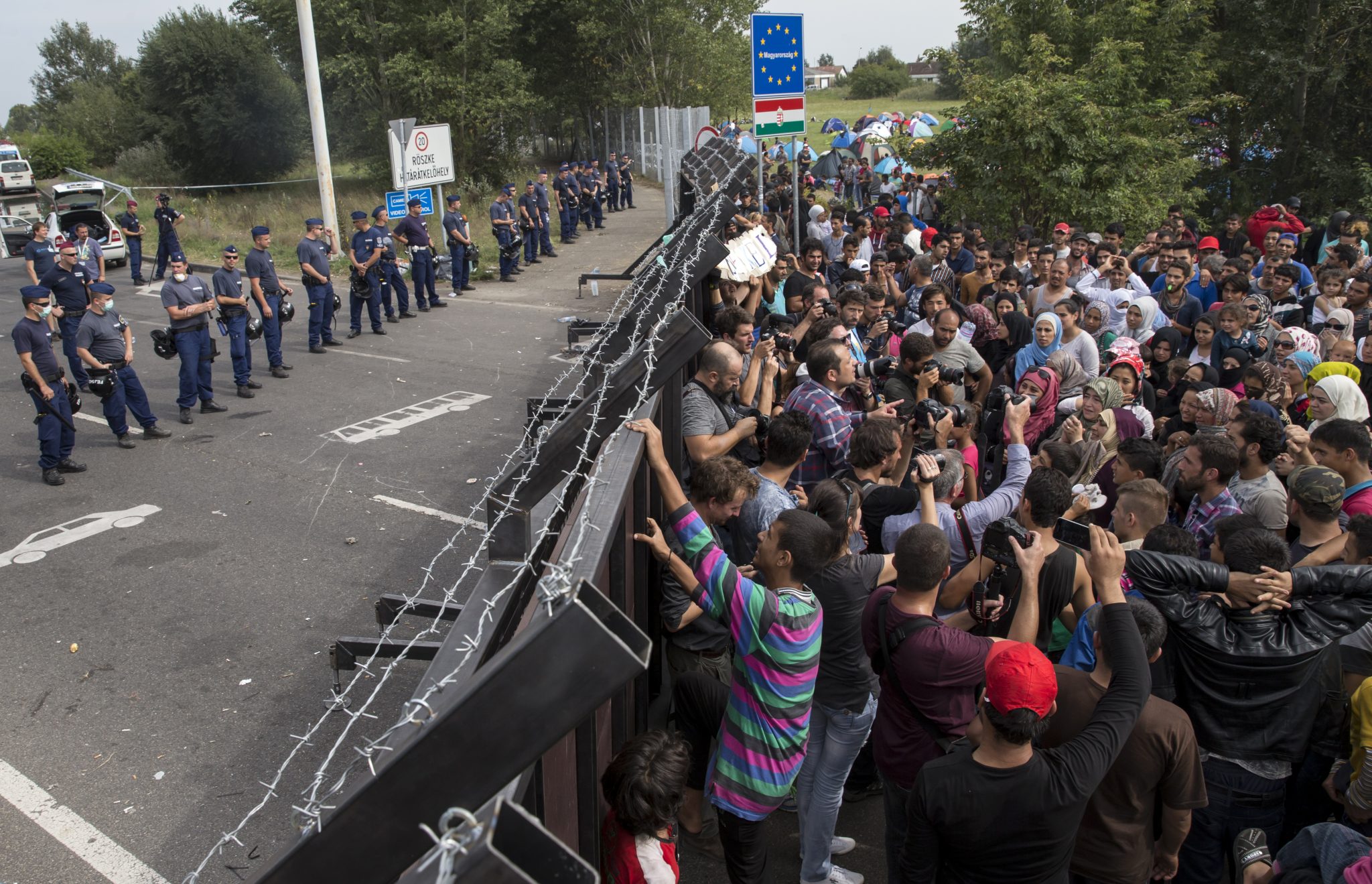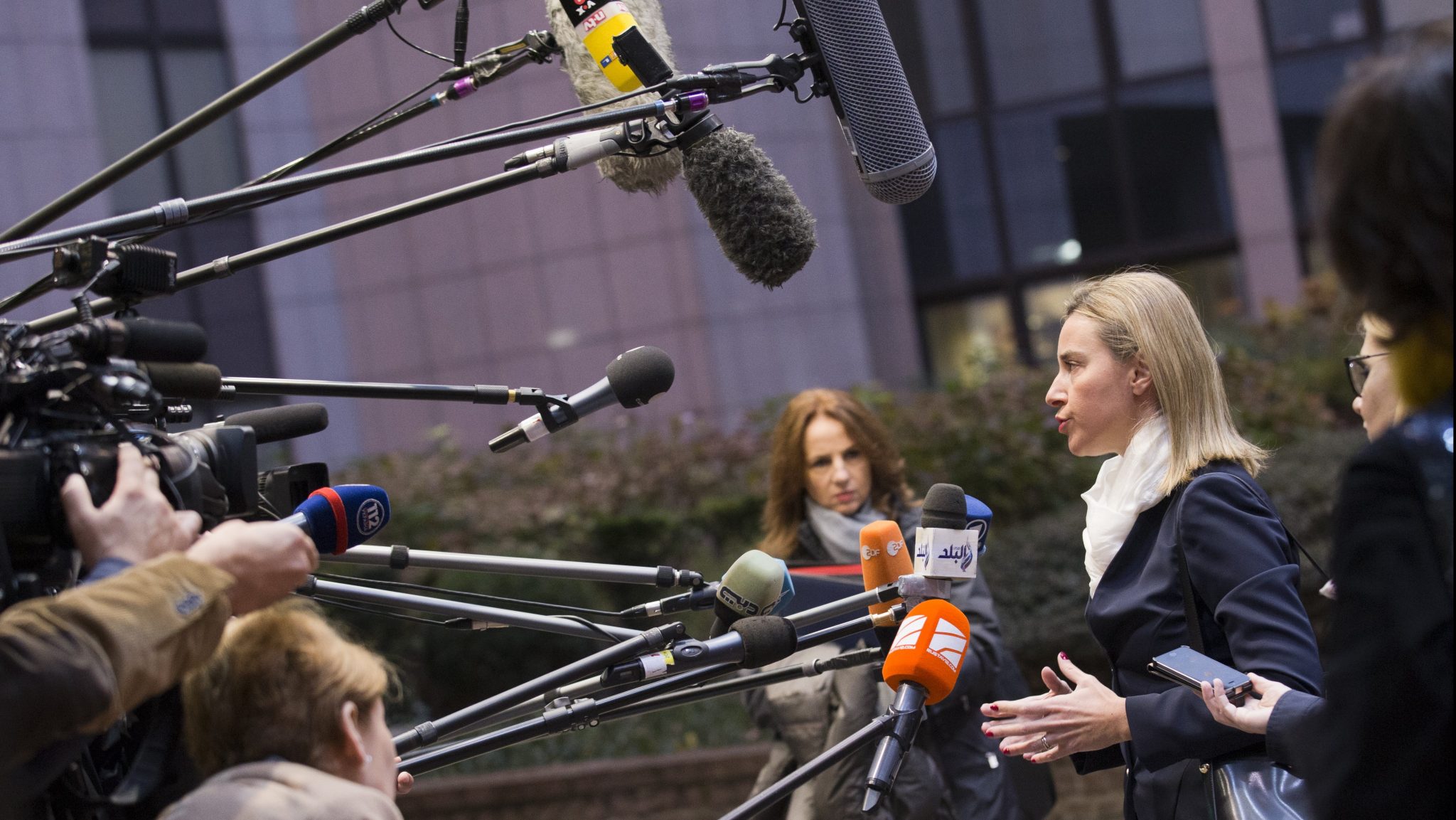
by Leopold Traugott*
Recently, Martin Schulz travelled to Turkey for the first time since the country’s failed coup in July. One of the main talking points on the agenda was the continuation of the European Union’s (EU) refugee deal with Turkey. While Schulz and Erdogan discussed how to protect Europe’s borders to the East, Angela Merkel hinted at a plan to outsource the protection of the Union’s southern borders against refugees to the states of North Africa.
While these plans can be helpful in taking short term pressure off the EU’s external and internal borders, they are also very dangerous. Not only do they make European states susceptible to blackmail, as we have seen already with Libya and most recently Turkey, but they might also be a hindrance to the creation of a stable and endogenous border protection through the EU itself. If Europe wants to stabilize itself against the relentless pressure of South-North migration — a must rather than an option — taking matters into its own hands is the only sustainable way forward.
The idea of outsourcing the nasty job to secure borders against refugees is understandably compelling, in particular for politicians who are faced with an increasingly restless electorate. It takes the pressure off them to agree on and implement their own mechanisms, and instead allows them to pay others to do so. They have to care less about refugees’ rights, because atrocities happening far away might create outrage on Facebook, but have little impact on the mood of their electorate. While this might help politicians get reelected, it should not be what guides our politics.
To begin with, it is crucial to realize who the European Union would need to partner with. Most North African states are undemocratic (Tunisia being the exception) and care more about internal retention and expansion of power than their international obligations.
Libya’s former dictator Muammar Gaddafi had little inhibitions about blackmailing Europe and threatening to “turn it black” when he wanted more money to prevent migrants from crossing over the Mediterranean. Neither did Turkey’s Recep Tayyip Erdogan hesitate to threaten Brussels with dissolving their agreement when he desired better conditions. Outsourcing border security means positioning Europe in a situation of vulnerability. The EU should be wary of this, otherwise it might find itself at the whim of foreign dictators.
Secondly, outsourcing border security would entail further compromising Europe’s dedication to human rights. The situation in Greek and Italian refugee camps is terrible, yet help can still be administered. Once these camps are effectively under the sole supervision of countries such as Libya, Sudan or the Chad — all with horrible human rights track records — conditions would plummet drastically.
Amnesty International has already documented cases of rape, torture, extortion and exploitation of refugees by Libyan officials. Sudanese President Al-Bashir, another possible ally to stop the refugee stream, awaits an outstanding arrest warrant by the International Criminal Court, which sentenced him for genocide and crimes against humanity. Tasking those states to slow down migration to the North and stop refugees would be disastrous. It would lead to massive human rights violations and would make it even harder for those refugees who need most urgent help to make it to the safety of Europe.
Instead, European decision-makers should follow the words of Austrian foreign minister Kurz, who recently stated that Europe should secure its borders on its own. This could mean putting up a chain of hotspots at the EU’s external borders and on islands in the Mediterranean, where arriving refugees are brought to have their asylum claim assessed. By directly assessing claims at the border, those denied asylum could be deported and real refugees could receive better help upon arrival. In the long run, arrival numbers would significantly decrease because of the knowledge that a boat ride into European waters does not lead to a free passage to Germany or Sweden, but merely to an honest assessment of asylum claims.
Rather than giving away their border security to foreign regimes, Europe’s leaders should take it into their own hands. It would alleviate troubles for “transit countries” in the South and East that have to handle hundreds of thousands of arrivals each year, and would allow “arrival countries” such as Germany and Sweden to integrate refugees who already arrived. Perhaps most importantly, the creation of an honest and comprehensible asylum and integration system would help those who are most vulnerable: those fleeing war and persecution looking for safety and a new home, but who are currently caught up in a massive human trafficking machinery.
Leopold Traugott is a Young Voices Advocate and the director of Campus Europe.



